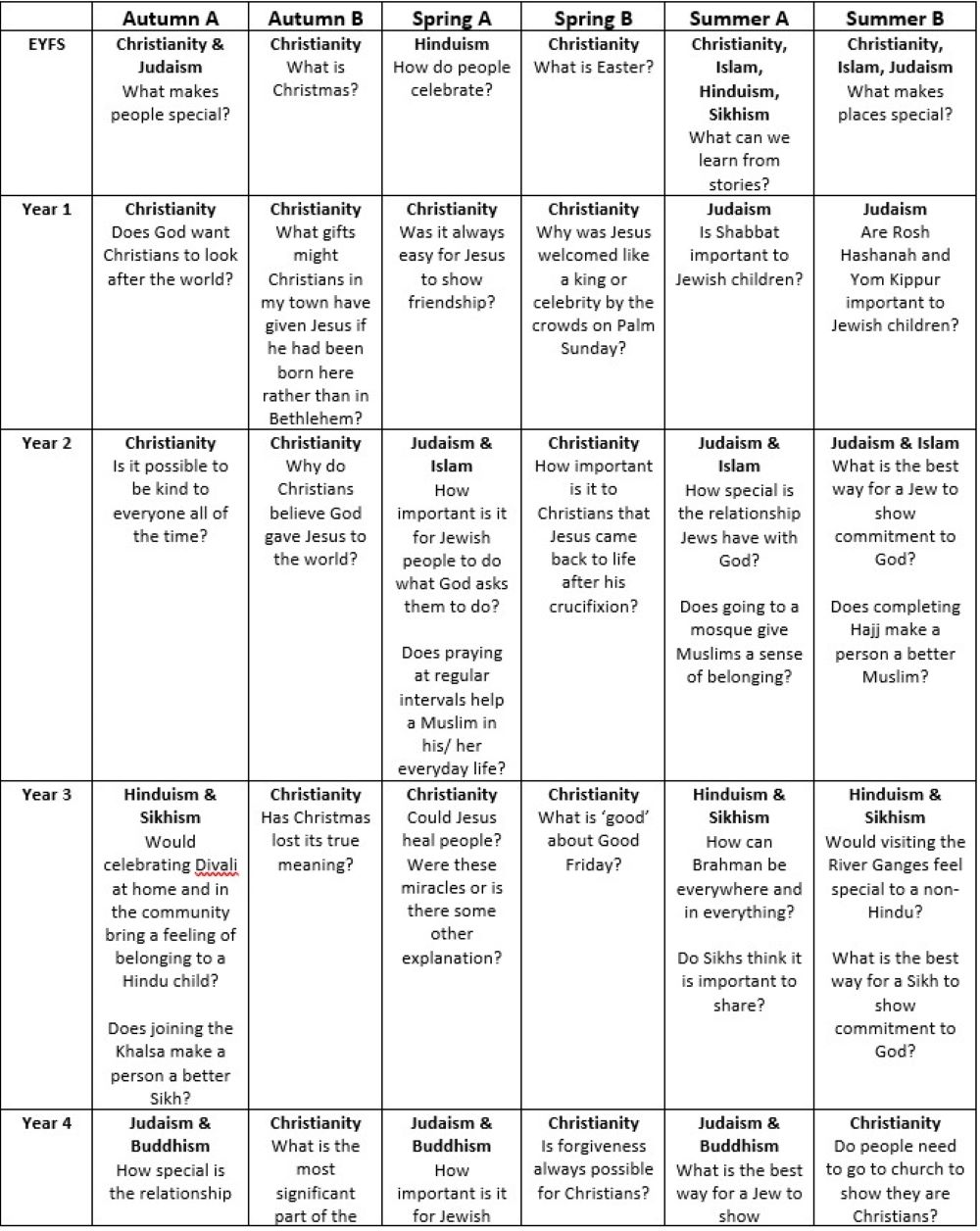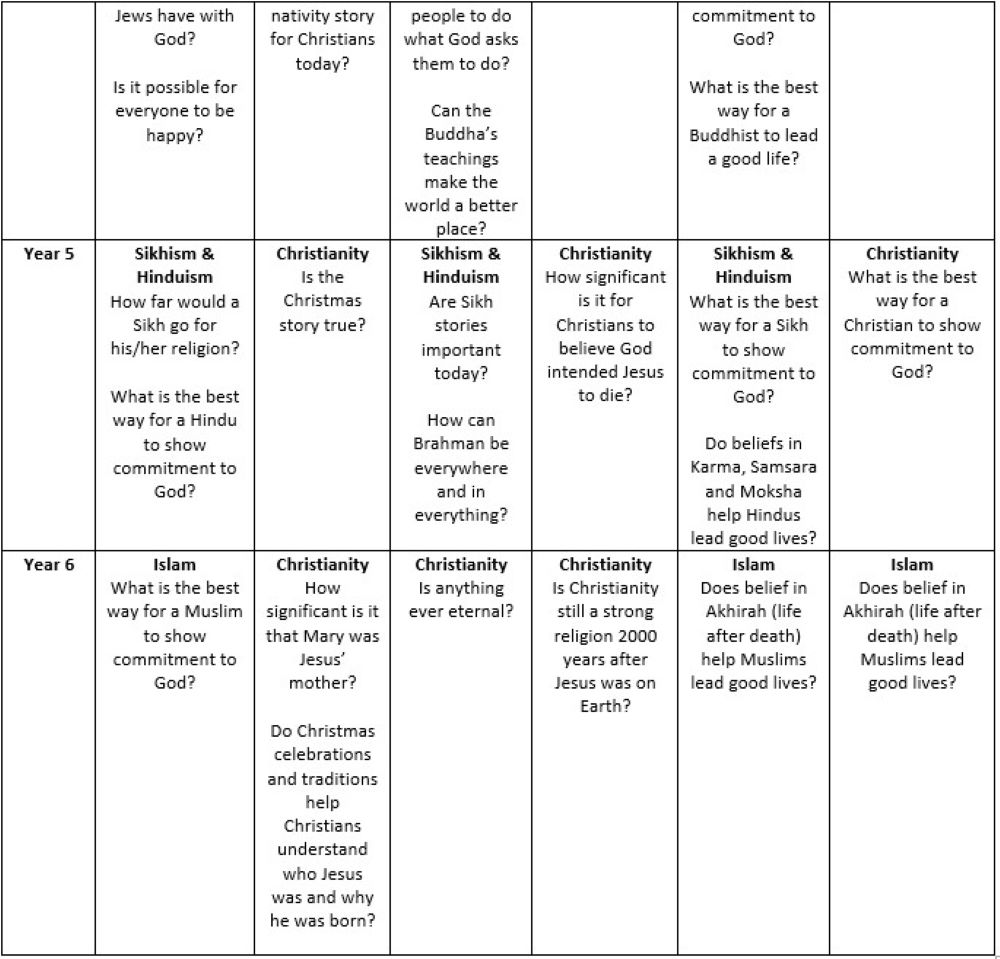Religious Education Studies
Intention
It is our intent at Brookside Academy for the Religious Educcation element of our schoolo curriculum to engage, inspire, challenge and encourage pupils, equipping them with the knowledge and skills to answer challenging questions, exploring different religious beliefs, values and traditions. This will enable them to develop a more rigorous understanding of the numerous religious traditions, beliefs and practices that are followed in our multi-cultural society. We want them to know how religious education promotes discernment and enables pupils to combat prejudice, preparing them for adult life, employment and life-long learning.
Implementation
At Brookside Academy, R.E contributes to our whole school: we have adopted a challenging, enquiry-based approach to teaching and learning, which requires children to retain knowledge and apply it to a series of big questions. We believe that using an enquiry-based model develops children's critical thinking skills, increases their inspiration to learn, and enhances their understanding of - and respect of - people and their beliefs, religious or otherwise. This approach takes very seriously the philosophy that children are free to independently make their own choices and decisions concerning religion and belief. All viewpoints are respected and children are taught that difference in opinion and belief are to be celebrated. We also seek to use mindfulness practices where possible to develop a sense of awareness in a non-judgmental way; we believe that mindfulness practices are important as they build children's self-awareness and skills of reflection, which can in turn support their learning in R.E and their personal spiritual development.
Impact
When considering the structure of the curriculum, the framework allows children as they go through the school to develop a strong sense of their own perceptions as well as developing an understanding of ideas and opinions that are different to their own. In EYFS, the focus of the units of work is to allow the children to develop a positive sense of themselves, and others, and to learn how to form positive and respectful relationships. In KS1, pupils should begin to develop their own knowledge and understanding of religions and worldviews. Children will begin to raise their own questions and express their own views in response to the content of the lessons and questions that are raised during discussions. In KS2, children will be extending their knowledge and understanding of religions and worldviews where they will be encouraged to be curious and ask increasingly challenging questions about religion, belief, values and human life. Children in Special Provision are able to access the curriculum at a stage that is appropriate to their individual stage of learning.
The impact of our R.E curriculum is measured by regular monitoring, observations and teacher assessment.
Curriculum Overview (Mainstream EYFS - Year 6)


Quotes from pupils
'I love our owl, she's called Abbie, we ask her lots of questions.' (Year 1)
I like R.E, it helps us to understand what people believe - that helps us to know them.' (Year 3)
We learn R.E so that we understand what others believe. This is important when we visit other countries or when people from other countries move to live here.' (Year 4)
'Learning about religious beliefs, helps us to understand why some wars start. It's important that we understand what people from other culture believe, so that we can prevent them from happening in the future.' Evelyn (Year 6)
'I really like the diversity of R.E - we learn new things each time.' Fred (Year 6)
'I really like it when Reverend Ana comes in; she tells us lots of stories. She's nice.
